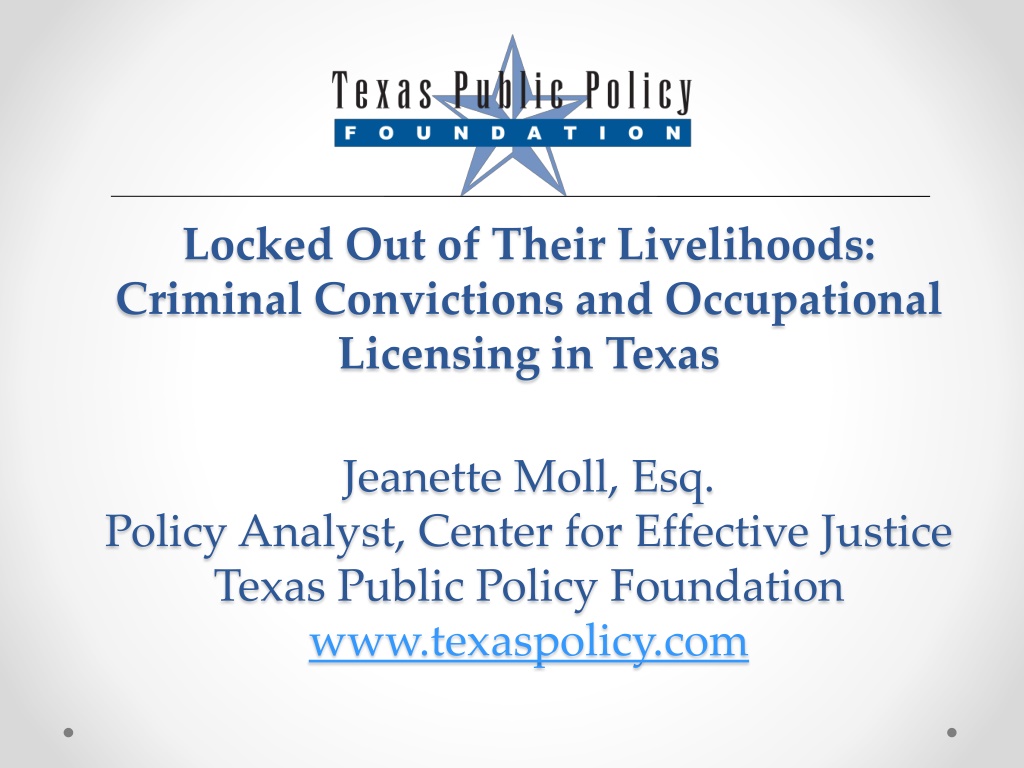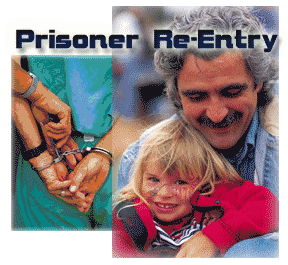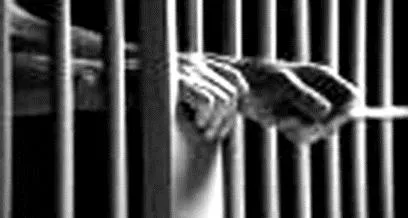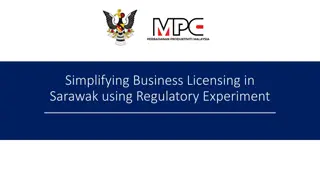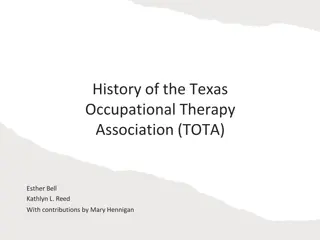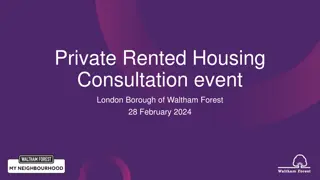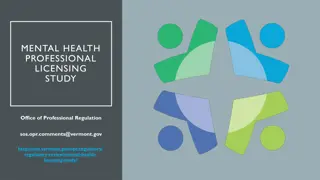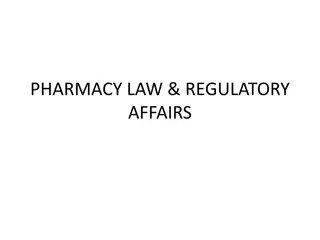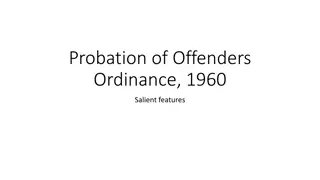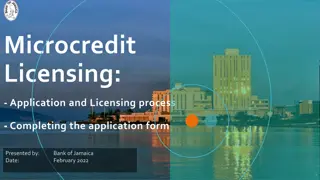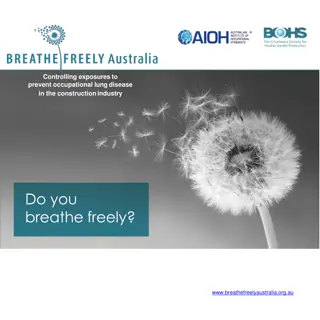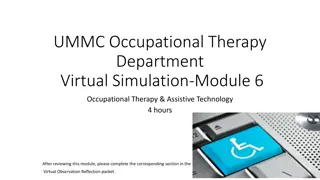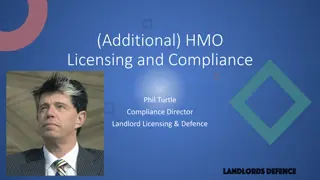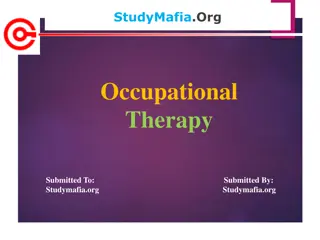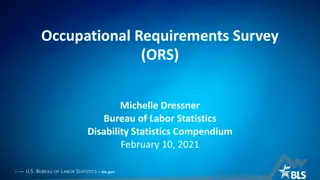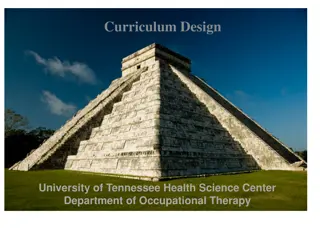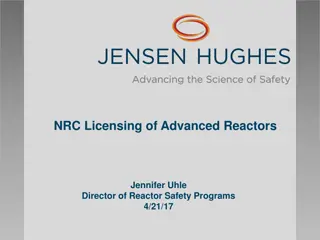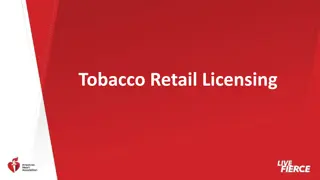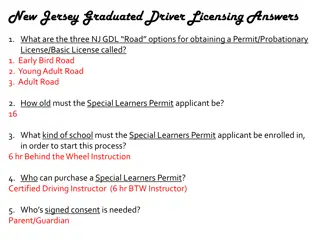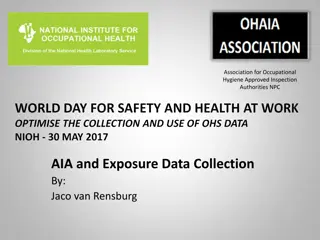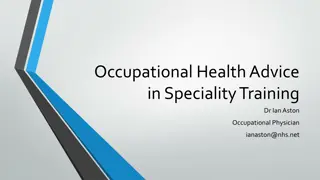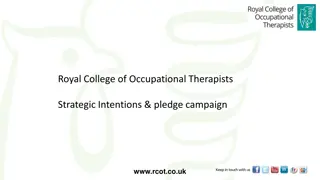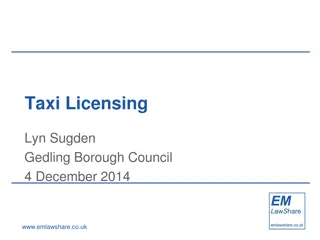Occupational Licensing Restrictions on Ex-Offenders in Texas
This study delves into the impact of criminal convictions on occupational licensing in Texas, exploring the barriers faced by ex-offenders in obtaining various licenses, affecting employment opportunities and reintegration into society.
Download Presentation

Please find below an Image/Link to download the presentation.
The content on the website is provided AS IS for your information and personal use only. It may not be sold, licensed, or shared on other websites without obtaining consent from the author. Download presentation by click this link. If you encounter any issues during the download, it is possible that the publisher has removed the file from their server.
E N D
Presentation Transcript
Locked Out of Their Livelihoods: Criminal Convictions and Occupational Licensing in Texas Jeanette Moll, Esq. Policy Analyst, Center for Effective Justice Texas Public Policy Foundation www.texaspolicy.com
Introduction State statutes and regulations potentially bar ex-offenders from over 150 different licensed occupations from pest control to athletic training to plumbers to tow truck drivers. About half of these restrictions are statutes and the other half are agency rules. Licensed occupations are not limited to those of high professionalism, fiduciary duty, or responsibility: Texas also licenses 34 low-income occupations.
Why It Matters There are at least 2 million ex-offenders in Texas. Between 15 to 20 percent of Texas men are in prison, on probation, on parole, or have a warrant for their arrest. o 70,000 were released from prison in 2011 alone. Ex-offenders who are employed are three times less likely to re-offend o Employment is often required for parole; it is also highly correlated with stable housing, positive relationships, and desistance. Texas ex-offenders owe billions in child support and restitution. It s estimated that TDLR rejected 1,200 applicants between 2008 and 2011 based on their criminal histories o DPS, which licenses security guards and locksmiths, rejected 6,500 in that time period.
Basic Texas Law The Texas Occupations Code Section 53.021 provides that a licensing authority may suspend or revoke a license or disqualify a person from receiving a license upon conviction for, o (1) an offense that directly relates to the duties and responsibilities of the licensed occupation; o (2) an offense that does not directly relate to the duties and responsibilities of the licensed occupation and that was committed less than five years before the date the person applies for the license; o (3) an offense listed in Section 3g, Article 42.12, Code of Criminal Procedure; or o (4) a sexually violent offense, as defined by Article 62.001, Code of Criminal Procedure. This was the result of 2009 legislation; previously, licensing authorities could restrict licensure based on any felony or misdemeanor that related to the profession.
Except! Texas Occupations Code Section 53.021(e): the prior limitations do not apply if the person is an applicant for or the holder of a license that authorizes the person to provide: (1) law enforcement or public health, education, or safety services; or (2) financial services in an industry regulated by a person listed in Section 411.081(i)(19), Government Code.
Convictions do not include A plea of nolo contendere Deferred adjudication (provided charges were dismissed following supervision) UNLESS After a consideration of various factors, the licensing authority determines that, o the person may pose a continued threat to public safety; or o employment of the person in the licensed occupation would create a situation in which the person has an opportunity to repeat the prohibited conduct.
Directly Relates the nature and seriousness of the crime the relationship of the crime to the purposes for requiring a license to engage in the occupation the extent to which a license might offer an opportunity to engage in further criminal activity of the same type as that in which the person previously had been involved; and the relationship of the crime to the ability, capacity, or fitness required to perform the duties and discharge the responsibilities of the licensed occupation. o TEX OCC. CODE 53.022
Fitness to perform the extent and nature of the person's past criminal activity; the age of the person when the crime was committed; the amount of time that has elapsed since the person's last criminal activity; the conduct and work activity of the person before and after the criminal activity; evidence of the person's rehabilitation or rehabilitative effort while incarcerated or after release; and other evidence of the person's fitness, including letters of recommendation o TEX. OCC. CODE 53.023(a)
Additional Proof To show one s fitness to perform and ability to discharge the responsibilities of the profession, the applicant shall provide proof that, o maintained a record of steady employment; o supported the applicant's dependents; o maintained a record of good conduct; and o paid all outstanding court costs, supervision fees, fines, and restitution ordered in any criminal case in which the applicant has been convicted TEX. OCC. CODE 53.023(c)
Provisional/Probationary Licenses In 2009, under House Bill 963, Texas authorized appropriate, qualified ex-offenders to obtain a provisional or probationary license to enter certain occupations. o TEX. OCC. CODE 53.0211(c) provides for a license for six months. o Under part (d), the provisional license can be revoked due to the commission of a new offense, revocation of community supervision, mandatory supervision, or parole, or a violation of one of the rules of the licensed occupation. If the license is revoked, then disqualified. If the license is unrevoked at the expiration of the provisional period, the authority shall issue the originally applied for license. A supervised or paroled applicant must provide the probation or parole officer s name to the licensing authority, to exchange information regarding the provisional license or any revocations.
Declaratory Order Procedure House Bill 963 also required each licensing agency to implement a Declaratory Order Procedure. This permits applicants to find out in advance if their criminal record would disqualify them from licensure prior to spending time or money on training programs or other prerequisites. A fee may be charged for this advance notice. Within 90 days, the licensing authority must respond TEX. OCC. CODE 53.101, et seq.
Notice and Review Suspension, revocation, or denial of a license must be delivered via written notice, including the o Reasons o Review options o Earliest Date of Appeal An administrative hearing appealing a denial must be filed within 20 days; further denial must be appealed through a timely motion for rehearing. Upon exhaustion of administrative appeals, an appeal can be filed with the district court, within 30 days of the licensing authority s final and appealable decision.
Examples of Texas Barriers Section 76.108 of the Agriculture Code disqualifies ex-offenders convicted of a felony involving moral turpitude within the last five years from obtaining a commercial license to apply pesticides. Section 451.251 of the Occupations Code authorizes denial of athletic trainer license upon conviction of certain misdemeanors and all felonies. Section 548.405 of the Transportation Code authorizes denial of a license to inspect emissions due to a conviction for a felony or class A or class B misdemeanor, in Texas or elsewhere.
Over-inclusive? The Texas State Board of Examiners of Dietitians has defined the following offenses as those directly relating to the practice of dietitians: o (1) the misdemeanor of knowingly or intentionally practicing dietetics without a license; o (2) an offense involving moral turpitude; o (3) the misdemeanor of failing to report child abuse or neglect; o (4) a misdemeanor involving deceptive business practices; o (5) the offense of assault or sexual assault; o (6) the felony offense of insurance claim fraud; o (7) a misdemeanor and/or a felony offense under various titles of the Texas Penal Code: (A) concerning Title 5 offenses against the person; (B) concerning Title 7 offenses against property; (C) concerning Title 8 offenses against public administration; (D) concerning Title 9 offenses against public order and decency; (E) concerning Title 10 offenses against public health, safety, and morals; and (F) concerning Title 4 offenses of attempting or conspiring to commit any of the offenses in subparagraphs (A) - (E) of this paragraph; or o (8) any other misdemeanor or felony directly relating to the duties and responsibilities of a licensee.
Legal Procedures Even juvenile offenses that are restricted access can be viewed by a licensing agency and used to exclude. Many juveniles do not know that they can petition to have the records sealed or cannot afford a lawyer to bring the proceeding.
National Trends The American Bar Association has recommended that states lower barriers, excluding only those offenders whose conviction directly related to the occupation and occurred recently, such as within five years. The EEOC recently issued a ruling that the blanket exclusion of those with a criminal record have a disparate racial impact and thus violate the Civil Rights Act. While this ruling does not apply to licensure, it signifies a trend towards employment considerations beyond criminal backgrounds. Ohio is currently considering broad legislation opening up more licenses to those with a record and creating a procedure for lifting civil sanctions. Michigan is considering abolishing 18 occupational licenses and nine occupational licensing boards.
82ndLegislature Activity HB 3167 by Representative Bill Callegari repealed state regulation of talent agencies and personnel services o easily circumvented o declining usage SB 78 by Senator Jane Nelson required health and human services agencies to share adverse licensure decisions with other agencies. Further licensure can be denied based on those shared records. SB 1733 by Senator Leticia Van de Putte required licensing authorities to permit alternative demonstrations of competency by military spouses who are licensed in another state or had been licensed in Texas within the last five years.
Conclusions & Recommendations Because occupational boards almost always consist of members of the field, there is incentive to keep out competition and avoid any risk to the image of the field. Perhaps these boards should be diversified with citizen members. Limit liability for employers who hire license holders with criminal convictions o No liability based solely on the fact of hiring o In negligent hiring cases, criminal record can only come into evidence if employer knew or should have known, AND conviction is directly related to nature of work as well as the conduct giving rise to the injury/suit. o UNLESS a misuse of funds/property case if conviction involved fraud/misuse of funds, and the contact with the funds/property was foreseeable HB 3327, 82ndLegislature, by Rep. Woolley 8-2 out of Judiciary and Civil Jurisprudence
